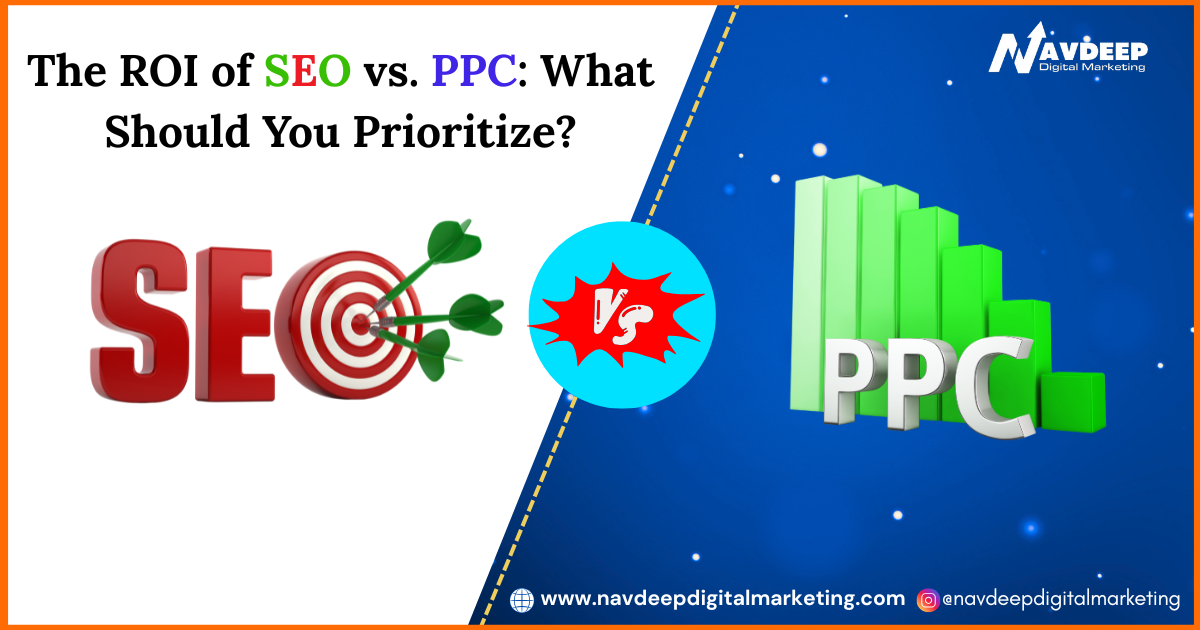How to Choose the Right Keywords for Your Business Website
March 23, 2025 | by Navdeep Digital Marketing

Introduction
Have you ever wondered why some local businesses appear at the top of search results while others remain hidden? Selecting the right keywords is crucial for your local business to rank higher in search engines and attract more potential customers. Whether you’re running a small shop, a clinic, or a service-based business, targeting the right local search terms ensures that potential customers can find you easily. “How to Choose the Right Keywords for Your Business Website” is a key step in improving your visibility and driving more relevant traffic to your website.
If you’re looking for expert guidance, Navdeep Digital Marketing specializes in Local SEO Services in Secunderabad, helping businesses achieve better rankings and more local leads.
Why Keywords Matter for Local SEO
Keywords are the bridge between what people search for and the content you provide. If you choose keywords wisely, you can attract local customers who are actively searching for your products or services. By integrating keywords naturally into your website content, meta tags, and blogs, you enhance your local search rankings and increase your chances of appearing in Google’s “Local Pack.”
Step-by-Step Guide to Choosing the Right Keywords
1. Understand Your Audience
Before choosing keywords, put yourself in the shoes of your potential customers. Think about:
- What services do they need?
- How would they describe those services?
- What local terms would they use?
For instance, if you provide Local SEO Services in Secunderabad, your target audience may search for terms like “best SEO company in Secunderabad” or “affordable SEO services near me.”
2. Conduct Competitor Analysis
One of the best ways to find effective keywords is by analyzing competitors. However, instead of simply copying their strategy, identify gaps they may have overlooked. Look for unique keyword opportunities that align with your brand’s strengths and customer needs, helping you stand out in the market. Use SEO tools like Ahrefs, SEMrush, or Ubersuggest to check what keywords your competitors rank for. Look for:
- High-ranking keywords they use
- Gaps in their keyword strategy that you can capitalize on
- Long-tail keywords they might be missing
3. Use Keyword Research Tools
There are various keyword research tools that can help you find the best terms for your business. Some popular options include:
- Google Keyword Planner – Helps find search volumes and competition levels.
- Ahrefs – Provides keyword difficulty scores and ranking insights.
- Moz Keyword Explorer – Suggests related keywords and search trends.
- Ubersuggest – A free tool that provides keyword ideas and competition data.
- Google Trends – Helps identify keyword popularity over time.
Using these tools, you can find primary keywords like “Local SEO Services in Secunderabad” and secondary keywords such as “SEO agency for small businesses” or “digital marketing experts in Secunderabad.”
4. Focus on Long-Tail Keywords
Long-tail keywords contain more specific phrases and usually have lower competition but higher conversion rates. Instead of using a broad keyword like “SEO services,” try:
- “Affordable local SEO services in Secunderabad”
- “Best SEO agency for small businesses in Secunderabad”
- “Navdeep Digital Marketing expert SEO services”
These longer phrases help attract customers who are closer to making a purchasing decision.
5. Consider Local Intent and Geo-Specific Keywords
Local businesses must focus on geo-targeted keywords to appear in Google’s Local Pack and Maps results. Make sure to include:
- City or neighborhood names (e.g., “SEO expert in Secunderabad”)
- Phrases with “near me” (e.g., “best SEO consultant near me”)
- Industry-specific local terms (e.g., “digital marketing for Secunderabad startups”)
6. Optimize Your Website Content
Once you’ve selected the right keywords, place them naturally throughout your website:
- In the page titles and meta descriptions
- Within headings (H1, H2, H3)
- Inside website content and blog posts
- In image alt texts and URLs
- Within local business directories and citations
7. Track Performance and Adjust Accordingly
SEO is an ongoing process. Monitor how your chosen keywords are performing using Google Analytics, Google Search Console, and SEO tools. These tools help track website traffic, keyword rankings, and user behavior, enabling you to refine your strategy based on real data. If a keyword isn’t bringing the expected traffic, experiment with different variations or long-tail versions.
Conclusion
Choosing the right keywords is a vital step in boosting your local business’s online visibility. For example, a local bakery in Secunderabad improved its online presence by targeting keywords like ‘fresh cakes in Secunderabad’ and ‘best birthday cakes near me,’ which resulted in a 40% increase in website traffic and more in-store visits. “How to Choose the Right Keywords for Your Business Website” is not just about stuffing terms into your content but strategically selecting words that connect with your audience. If you need expert assistance, Navdeep Digital Marketing offers specialized Local SEO Services in Secunderabad to help businesses grow.
Ready to boost your local search rankings? Contact Navdeep Digital Marketing today and get a free SEO consultation!
10 Q&A on Choosing the Right Keywords for Local SEO
1. What are local SEO keywords?
Local SEO keywords are search terms that include geographic location (e.g., “digital marketing agency in Secunderabad”).
2. How do I find the best local keywords for my business?
Use tools like Google Keyword Planner, Ahrefs, and Moz to discover relevant local search terms. For businesses on a budget, free tools like Ubersuggest or Google Trends can also provide valuable insights.
3. What is the difference between short-tail and long-tail keywords?
Short-tail keywords are broad (e.g., “SEO services”), while long-tail keywords are more specific (e.g., “affordable SEO services in Secunderabad”).
4. How often should I update my keyword strategy?
Regularly review and update keywords every 3-6 months based on performance data.
5. Should I include my business name in keywords?
Yes! Using branded keywords like “Navdeep Digital Marketing SEO services” helps build authority.
6. Where should I place keywords on my website?
In titles, meta descriptions, headings, content, URLs, image alt texts, and local directories.
7. What are geo-modified keywords?
These are keywords that include a location (e.g., “best digital marketing in Secunderabad”).
8. How many keywords should I target?
Focus on 5-10 primary keywords and several variations for a well-rounded strategy.
9. Can I use the same keywords for all my web pages?
Each page should have unique and relevant keywords to avoid keyword cannibalization.
10. How long does it take for keywords to improve rankings?
SEO results take time. Expect 3-6 months to see significant improvements
RELATED POSTS
View all



